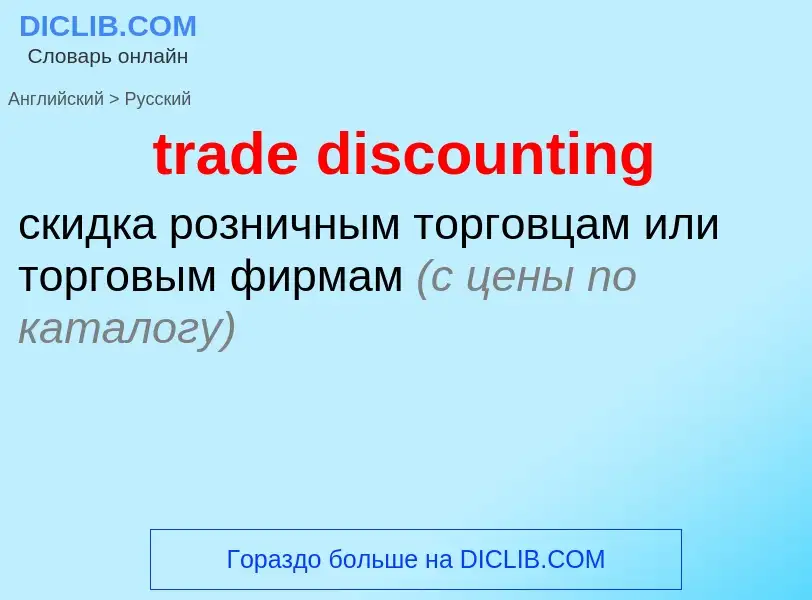Перевод и анализ слов искусственным интеллектом ChatGPT
На этой странице Вы можете получить подробный анализ слова или словосочетания, произведенный с помощью лучшей на сегодняшний день технологии искусственного интеллекта:
- как употребляется слово
- частота употребления
- используется оно чаще в устной или письменной речи
- варианты перевода слова
- примеры употребления (несколько фраз с переводом)
- этимология
trade discounting - перевод на русский
['kauntətreid]
метеорология
антипассат
существительное
метеорология
антипассат
Википедия
In economics, hyperbolic discounting is a time-inconsistent model of delay discounting. It is one of the cornerstones of behavioral economics and its brain-basis is actively being studied by neuroeconomics researchers.
According to the discounted utility approach, intertemporal choices are no different from other choices, except that some consequences are delayed and hence must be anticipated and discounted (i.e., reweighted to take into account the delay).
Given two similar rewards, humans show a preference for one that arrives sooner rather than later. Humans are said to discount the value of the later reward, by a factor that increases with the length of the delay. In the financial world, this process is normally modeled in the form of exponential discounting, a time-consistent model of discounting. Many psychological studies have since demonstrated deviations in instinctive preference from the constant discount rate assumed in exponential discounting. Hyperbolic discounting is an alternative mathematical model that agrees more closely with these findings.
According to hyperbolic discounting, valuations fall relatively rapidly for earlier delay periods (as in, from now to one week), but then fall more slowly for longer delay periods (for instance, more than a few days). For example, in an early study subjects said they would be indifferent between receiving $15 immediately or $30 after 3 months, $60 after 1 year, or $100 after 3 years. These indifferences reflect annual discount rates that declined from 277% to 139% to 63% as delays got longer. This contrasts with exponential discounting, in which valuation falls by a constant factor per unit delay and the discount rate stays the same.
The standard experiment used to reveal a test subject's hyperbolic discounting curve is to compare short-term preferences with long-term preferences. For instance: "Would you prefer a dollar today or three dollars tomorrow?" or "Would you prefer a dollar in one year or three dollars in one year and one day?" It has been claimed that a significant fraction of subjects will take the lesser amount today, but will gladly wait one extra day in a year in order to receive the higher amount instead. Individuals with such preferences are described as "present-biased".
The most important consequence of hyperbolic discounting is that it creates temporary preferences for small rewards that occur sooner over larger, later ones. Individuals using hyperbolic discounting reveal a strong tendency to make choices that are inconsistent over time – they make choices today that their future self would prefer not to have made, despite knowing the same information. This dynamic inconsistency happens because hyperbolas distort the relative value of options with a fixed difference in delays in proportion to how far the choice-maker is from those options.

.jpg?width=200)

![[[IBM]] stand during [[CeBIT]] 2010 at the [[Hanover Fairground]], the largest exhibition ground in the world, in [[Hanover]], [[Germany]] [[IBM]] stand during [[CeBIT]] 2010 at the [[Hanover Fairground]], the largest exhibition ground in the world, in [[Hanover]], [[Germany]]](https://commons.wikimedia.org/wiki/Special:FilePath/IBM CeBIT 2010.jpg?width=200)
![A small trade show in [[Croatia]], with the exhibition booth of the [[Croatian Chamber of Economy]] A small trade show in [[Croatia]], with the exhibition booth of the [[Croatian Chamber of Economy]]](https://commons.wikimedia.org/wiki/Special:FilePath/MESAP 2017. - štand HGK.jpg?width=200)
